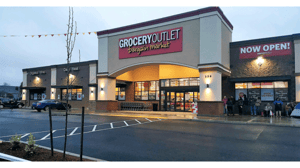Metro stores in Toronto reopen for business after end of strikeMetro stores in Toronto reopen for business after end of strike
Wage increase brought by new contract compensates for loss of $2-per-hour “hero pay” after pandemic.

Twenty-seven Metro supermarkets in greater Toronto reopened for business on Tuesday as 3,700 grocery associates represented by Unifor Local 414 returned to work after ratifying a new contract.
The ratification vote, announced late Thursday ahead of Canada’s Labour Day weekend, officially ended a 32-day strike and came just over a day after Metro and Unifor reached a tentative agreement. Local 414 members had walked off the job on July 29 at Metro stores in 13 Toronto-area communities after voting down a tentative contract accord reached July 19. Metro shut the stores when the strike began but kept their pharmacies open, and picketing later expanded to two distribution centers in Toronto.
Montreal-based Metro noted that the new contract brings wage hikes and improved pension and other benefits for both full- and part-time employees.
“We are pleased to have reached a fair and reasonable outcome,” Joe Fusco, senior vice president at Metro, said in a statement. “Throughout this process, Metro has remained committed to bargaining in good faith and made every reasonable effort to present a serious offer to meet the needs of our employees and our business. Our store employees benefit from wages and working conditions among the highest in the industry, and the new contract maintains those standards. For its part, the company improved its operational flexibility to function effectively in the country’s most competitive marketplace.”
Union calls new contract “historic”
Unifor, Canada’s largest private-sector union, described Local 414’s new contract with Metro as “unparalleled” and said the deal “sets a precedent for further grocery store bargaining.”
Indeed, the ratified agreement brings a salve to what had been a sore point in negotiations: Metro’s phaseout of $2-per-hour bonus pay enacted during the COVID-19 pandemic. Unifor Local 414 President Gord Currie had said the cancellation of the so-called “hero pay,” and its exclusion in the earlier tentative contract proposal, paved the way for the strike.
Under the new contract, full-time and senior part-time workers will get an “unprecedented” wage increase of $2 per hour “within months,” and all workers—both full- and part-time—will receive an immediate, upfront raise $1.50 per hour, Unifor reported.
The union noted that these “front-loaded” wage gains were a priority in contract talks, explaining that the increases get more dollars into workers’ pockets more quickly and enable future annual wage improvements to “significantly compound” over time. A full-time clerk, for example, would get more than $33,000 in new earnings over the lifetime of the agreement.

Metro had closed the 27 stores impacted by the work stoppage but kept those locations' pharmacies open. / Photo: Shutterstock
“This is a historic collective agreement that sets a new bar for grocery store workers,” Unifor National President Lana Payne stated. “It was achieved thanks to our members’ perseverance and unwavering solidarity, as well as incredible community support. As a union, we know the unique time we are experiencing in our fight for workers, and we determined to seize that moment as we continue to organize for better for workers everywhere.”
In total, the hourly wage improvement brought by the new contract, over its duration, comes to $4.50 for full-time and senior part-time workers and $3.20 for non-senior part-time workers, according to Unifor. Hourly rates will reach $25.05 per hour for full-time clerks, while part-time clerks will see “significantly higher wages,” which the union said some frontline grocery workers described as “life-changing.”
“Workers made it abundantly clear that they needed to see real wage gains in the first year of the agreement to address the affordability issues they currently face, which is exactly what we accomplished in this new contact,” Currie commented. “I am extremely proud of our bargaining committee and all Metro workers for their bravery and determination.”
Other gains under the ratified agreement include a new part-time sick leave program; improved benefits and pensions; a new standardized work week for full-time workers; more stable scheduling, including additional guaranteed weekends off for some classifications; and job protection from the deployment of self-checkout stations.
Overall, Metro’s retail network includes 975 food stores under the Metro, Metro Plus, Super C, Food Basics, Adonis, Marché Richelieu and Première Moisson banners, as well as 645 drugstores and pharmacies under the Jean Coutu, Brunet, Metro Pharmacy and Food Basics Pharmacy banners, in Quebec, Ontario and New Brunswick.
About the Author
You May Also Like






